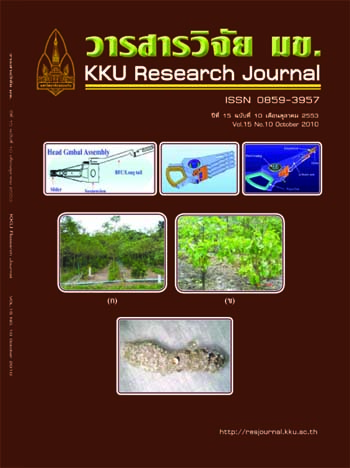Grounded theory of highly regarded high elementary science teachers’ PCK by Interpretive case Study (Thai)
Main Article Content
Abstract
The purpose of this study was to investigate three teachers’ understandings of Pedagogical Content Knowledge (PCK). The PCK is the main factor that affects a teacher’s practice. Purpose for teaching science is one component of PCK and it influences other components. Therefore, this study would like to find the answers to following questions; (1) What are the teachers’ understandings and practices in all aspects of PCK?; (2) What are factors that affect a teacher’s practice following science educational reform? Data sources consisted of questionnaires, interviews, a card sorting task, lesson plan, reflective journal, and classroom observations. Using a grounded theory and case study framework, inductive data analysis was used to construct theory for three case studies. Findings indicate that teachers’ understanding of PCK in aspects of purpose for teaching science, teaching strategy, learner and learning, curriculum and assessment is not consistent with the reform of science education. They have incomplete PCK and do not create efficiency in the classroom. The study found that the PCK teachers’ purpose for teaching science influenced on their understanding of other PCK components: teaching strategy; learner and learning; curriculum; and assessment. The teachers’ purpose for teaching science include their goals related to general schooling, the affective domain, the psychomotor domain and subject matter. The teachers did not set the affective domain as a major goal. The teachers’ understanding about successful science learning is substantively linked to their understanding about laboratory and inquiry implementation. The three teachers understood that successful science learning is a deep conceptual understanding and used verification experiments to illustrate theses concepts and used inquiry as a type of isolated problem-solving experience. The results show that if the teachers had more of a understanding of PCK; they would use more reformed teaching practices. This study finds that as sources of purpose for teaching science, participants are strongly influenced by the classroom context and their understandings about learner and learning. Additional influences included their prior work experiences, professional development, and time constraints. One implication of this study is the importance of understanding what teachers already know and believe about teaching, learning and learners and their purpose for teaching science. I recommend that professional development programs should support teachers to explore their understandings about teaching, especially their goals in teaching. Their knowledge and beliefs are allowed to change through appropriate professional development programs.


